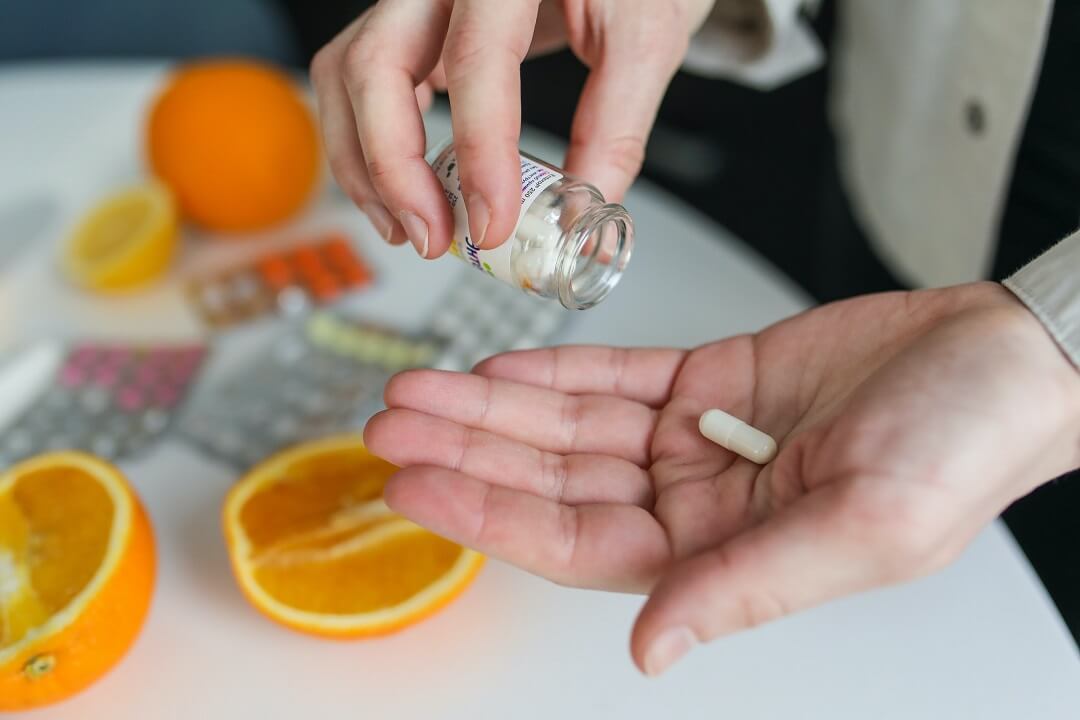You might not have heard of glutathione, but it’s a vital antioxidant that protects the body from a variety of diseases. The good news: Most people naturally produce sufficient levels of glutathione. If you’re healthy, there isn’t concrete evidence to suggest that taking glutathione as a supplement is necessary or useful.
However, some studies suggest that glutathione may have anti-aging and disease-preventing properties. It may also be helpful to people who already have diseases that cause reduced glutathione levels, like Parkinson’s disease, autoimmune diseases, insulin resistance, and more. Here, we’ll run through everything you need to know about glutathione.
What is glutathione?
Three amino acids create glutathione: cysteine, glycine, and glutamic acid. Together, they form a tripeptide that is present in the body’s cells at a similar concentration as other critical substances like glucose, potassium, and cholesterol.
In short, glutathione is part of the body’s natural defense against diseases. In addition to what the body produces on its own, glutathione can be taken as a supplement orally, intravenously, topically, or as an inhalant.
Much of the research around glutathione demonstrates the negative effects of not producing it naturally. For example, researchers have found that mice that have been genetically manipulated to not produce glutathione in the liver will die after one month, and people who are naturally deficient in glutathione experience to breaking down of red blood cells, enlargement of the spleen, gall stones and, over time, mental deterioration.
Benefits of glutathione
As a general supplement, the evidence is less clear, and more research needs to be done. Below, we’ll dive into the research around glutathione as a supplement and its effectiveness in treating and preventing specific diseases.
Antioxidant properties

Glutathione is an antioxidant, which means that it destroys potentially damaging substances known as free radicals. Free radicals cause oxidative stress, which is suspected to contribute to diseases like cancer, heart disease, stroke, and other diseases related to aging. In this manner, think about glutathione as soldiers guarding a castle. With fewer soldiers, there are more places for enemies (free radicals) to slip in and cause damage.
May improve motor function in people with Parkinson’s disease
Parkinson’s disease is a progressive brain disorder with no known cure. It’s marked by involuntary tremors, lack of coordination, and slowed, rigid movement. Research has found that Parkinson’s disease is often associated with oxidative stress and lower levels of glutathione.
In a 2020 meta-analysis, researchers found that glutathione treatments slightly improved the motor scores of patients with Parkinson’s disease and that it produced very few negative side effects.
May help fight autoimmune diseases
Autoimmune diseases like rheumatoid arthritis, celiac disease, and lupus often cause chronic inflammation, leading to elevated oxidative stress levels. One 2009 study indicated that glutathione helps reduce oxidative stress by controlling the body’s immune response — sometimes increasing the response and other times stifling it.
The knowledge that glutathione impacts the immune system is being used to guide further research into specific diseases and use cases.
May fight insulin resistance
A study investigated the effects of taking oral glutathione supplements on 20 obese individuals with and without type 2 diabetes. The results showed that the group taking glutathione (including people with and without type 2 diabetes) had a significant improvement in whole-body insulin sensitivity compared to the placebo group. Markers of oxidative stress didn’t show any significant changes, however.
May repair damage caused by fatty liver disease
Fatty liver disease is a potentially fatal condition that occurs when the liver stores excess fat. It can be caused by overconsumption of alcohol, obesity, insulin resistance, or other genetic factors.
In a study from 1995, intravenous, large doses of glutathione improved protein, enzyme, and bilirubin levels in the blood of individuals with alcoholic and nonalcoholic chronic fatty liver disease. The glutathione didn’t cure or reverse fatty liver disease but reduced some of the negative impacts of the disease.
May benefit long-term lung function in premature newborns
Low levels of glutathione in infancy are associated with chronic lung disease later on. In a small 2005 study of 14 ventilated premature infants, a single dose of glutathione raised their levels by 300% within 24 hours.
The study didn’t provide long-term results, so it can’t be said that treatment prevents lung disease. However, it raised the infants’ glutathione levels closer to normal levels that aren’t associated with chronic lung disease.
Supporting natural glutathione production

While glutathione isn’t directly found in food, certain foods can support the production of glutathione or provide the necessary nutrients for its synthesis. These foods include:
- Sulfur-rich foods: Glutathione contains sulfur, so consuming foods high in sulfur can support its production. Examples include garlic, onions, cruciferous vegetables (broccoli, Brussels sprouts, cabbage, cauliflower), and allium vegetables (leeks, onions, shallots).
- Fresh fruits and vegetables: Eating a variety of fruits and vegetables, particularly those rich in antioxidants like vitamins C and E, can promote glutathione production. Examples include citrus fruits, berries, kiwi, melons, spinach, kale, and asparagus.
- Whey protein: Whey protein contains high levels of cysteine, an amino acid that is a precursor to glutathione synthesis. Consuming whey protein or foods rich in whey protein, such as yogurt and milk, may help support glutathione levels.
- Nuts and seeds: Certain nuts and seeds, including walnuts, almonds, and flaxseeds, contain antioxidants and nutrients that support glutathione synthesis.
- Milk thistle: Some in vitro studies suggest that milk thistle’s main ingredient, silymarin, increases glutathione levels.
It’s worth noting that consuming these foods mostly helps the body produce its own glutathione rather than injecting the body with glutathione. It’s best to focus on maintaining a balanced and nutritious diet overall to support glutathione production.
Glutathione: The body’s natural disease fighter
Glutathione is a powerful antioxidant that’s abundant in healthy individuals. Depleted glutathione is an early marker of many diseases, and for that reason, ingesting glutathione may be effective at fighting some diseases or addressing side effects. However, extensive research needs to be done before anyone can say that glutathione treats or prevents any particular disease.





